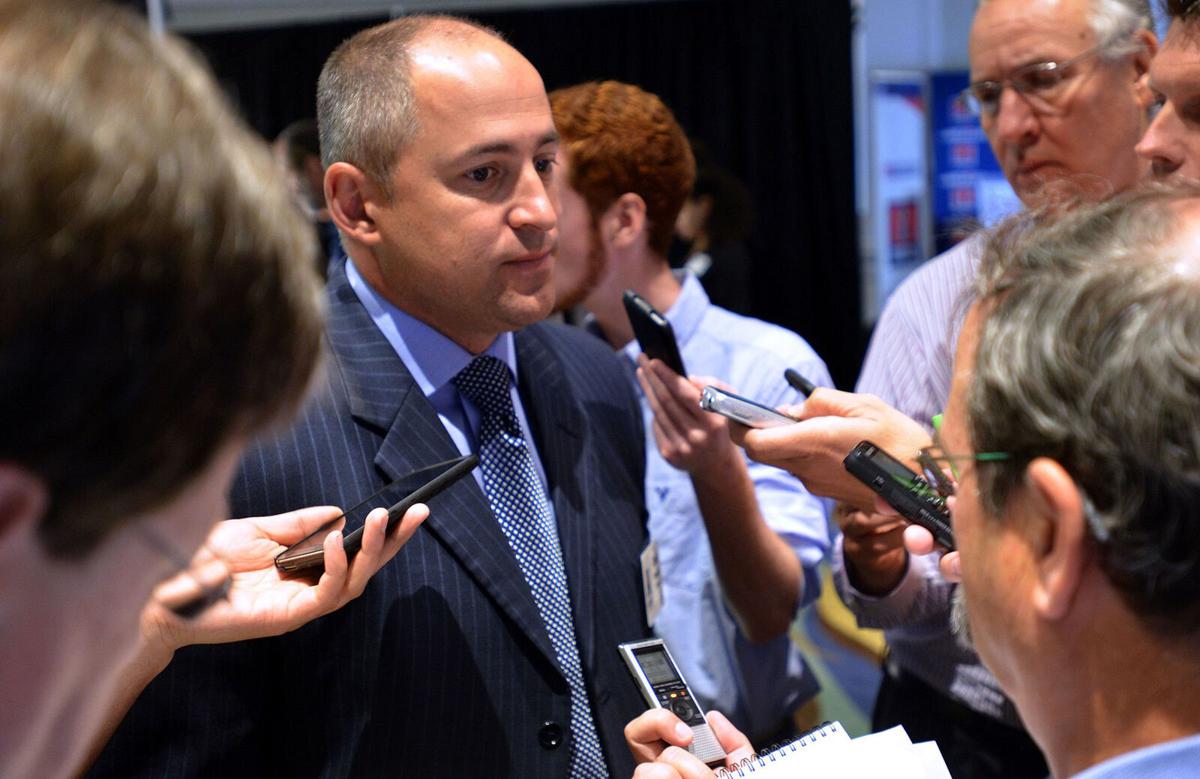The mental gymnastics needed to justify major college football became even harder to execute Wednesday after the latest rush of concerning coronavirus updates.
Start at UConn, which became the first Division I-A program to cancel its football season. The independent Huskies could have blamed their decision on scheduling difficulties as conferences opt for league-only seasons. Instead, they repeatedly cited health concerns.
"The safety challenges created by COVID-19 place our football student-athletes at an unacceptable level of risk," athletic director David Benedict said.
Then the NCAA's Board of Governors announced that all three of the association's divisions have until Aug. 21 to decide individually whether to try to hold championships this fall. By the end of the day, Division II and Division III had canceled their events, including cross country regionals at Saint Leo and soccer semifinals/ finals at the University of Tampa's Pepin Stadium.
On its own, the news wasn't startling; many D-III conferences had already bailed on the fall. But the decision creates another logic pretzel SEC and ACC administrators will have to twist into if they want to kick off next month.
One division believes it's too unsafe for participants in what the NCAA considers a medium-contact sport (cross country) to compete for championships this fall. Yet it's safe enough for athletes in a high-contact sport (football) to suit up?
The contradictions keep going. The Sunshine State Conference is among the smaller leagues that suspended fall sports last month. That means it's too much for the University of Tampa to play volleyball, but it's okay for USF to open preseason football camp across town Friday?
Some major schools, including USC, Cal and Rutgers, plan to start the fall semester online or at least hold most classes virtually. So studying English or engineering in a classroom together during the week is too risky, but it's fine for classmates to block and tackle on weekends?
The only way to start accepting the contradictions is to say the quiet part out loud: It's all about the money.
The generous view is that major football programs with deep pockets are best positioned to make practices and games as safe as possible. South Carolina coach Will Muschamp told reporters Wednesday that the SEC plans to test three times a week. It's the type of worthwhile expense only big programs can afford.
The NCAA's Board of Governors acknowledged as much Wednesday.
"We understand that each division's primary focus is health and safety, and some may not be similarly situated in terms of whether its members and governance structure have the resources available to take the necessary precautions (for regular-season competition or championships) given the health data trends and the spread of COVID-19," the board wrote.
If the haves think they can make it work financially, then the board doesn't want them to be overruled by the have-nots.
The cynical financial view is that big-time programs have more to lose. A fall without football would create an economic crisis across college sports and their communities.
Athletic departments aren't sympathetic entities. Administrators have been spending excessively for years through gold-plated facilities, skyrocketing salaries and armies of analysts.
But abandoning the season wouldn't only trim the wasteful expenses. It would cut deep into departments, affecting the livelihoods of hard-working men and women. It would harm, if not wipe out, some non-revenue sports, limiting the educational and Olympic opportunities for current and future athletes.
The potential financial devastation is important to consider. Just not as important as the health of players, coaches and the public.
The Big Ten seems to understand this point. When it unveiled its updated conference-only schedule Wednesday morning, the league stressed that "issuing a schedule does not guarantee that competition will occur," if the "alarming" spread of the virus does not slow.
The harsh injection of reality into an announcement of optimism was a vital public acknowledgement of where college sports and the country stand, almost five months into the pandemic.
The idea of major college football this fall isn't only becoming hard to envision. It's becoming harder to rationalize.
Visit the Tampa Bay Times (St. Petersburg, Fla.) at www.tampabay.com





